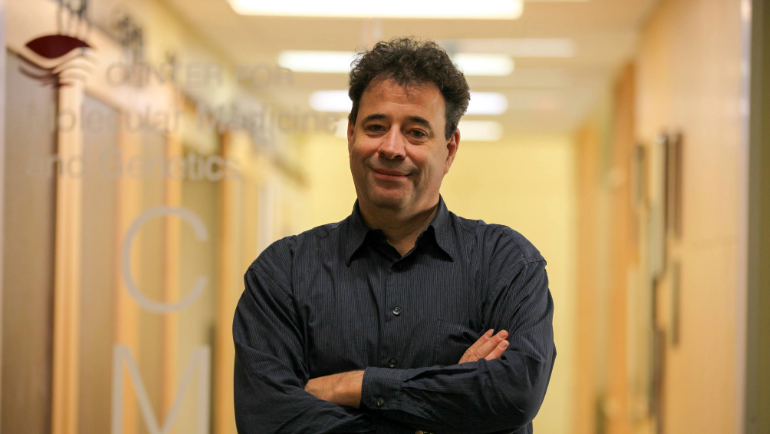Wayne State University awarded $1.4 million from Department of Defense to expand on research findings surrounding prostate cancer

DETROIT– A team of researchers from Wayne State University was awarded a $1.4 million, three-year grant from the U.S. Department of Defense for the study, “Cytochrome c acetylation drives prostate cancer aggressiveness and Warburg effect.”
The study, led by Maik Hüettemann, Ph.D., professor of molecular medicine and genetics, and biochemistry, microbiology and immunology at Wayne State University’s School of Medicine, aims to establish the role of the protein cytochrome c, which the team proposes is central in two hallmarks of cancer: switching from aerobic to glycolytic metabolism – also known as the Warburg effect – and evasion of apoptosis.
According to the National Cancer Institute of the National Institutes of Health, in 2023 it was estimated that more than 288,000 men would be diagnosed with prostate cancer and 34,700 would die in the United States, making it the second most common cancer in men. In the past decade, diagnoses of prostate cancer increased from 3.9% to 8.2%, with African American men having the highest incidence and mortality rates of the disease compared to white, Hispanic and Asian men. Cytochrome c was previously suggested to be a molecular determinant of prostate cancer health disparities, and this study will further explore this hypothesis.
The research team proposes that cytochrome c transitions from a non-acetylated form in a normal prostate to a K53-acetylated cytochrome c in cancer.
“What we are proposing is that this transition causes switching from aerobic metabolism to Warburg metabolism because the modification renders cytochrome c less effective in transferring electrons in the electron transport chain, and at the same time making it incapable of triggering apoptosis,” said Hüettemann. “Warburg and evasion of apoptosis are two key features of cancer cells. This funding from the Department of Defense will allow us to develop an antibody as a prognostic and diagnostic tool and to mechanistically study the pathways leading to acetylation of cytochrome c, with the ultimate goal of identifying novel therapeutic targets that could result in developing a drug to overcome treatment resistance as a stand-alone or combination therapy.”
“This important funding from the U.S. Department of Defense supports high-impact research needed to advance our understanding of how to detect and treat prostate cancer,” said Ezemenari M. Obasi, Ph.D., vice president for research at Wayne State University. “The work that Dr. Hüettemann and his collaborators are doing will improve health equity and reduce disparities in prostate cancer and may ultimately enhance the quality and length of life for those impacted by prostate cancer.”
Collaborators on this project include Izabela Podgorski, Ph.D., professor of pharmacology, Wayne State University School of Medicine; Elisabeth Heath, M.D., associate director, Department of Oncology, Wayne State University School of Medicine; Seongho Kim, Ph.D., professor of oncology, Wayne State University School of Medicine; and Dongping Shi, M.D., chief and medical director, Detroit Medical Center Sinai-Grace Hospital.
The grant number for this U.S. Department of Defense grant is HT94252410073.
###
About Wayne State University
Wayne State University is one of the nation’s pre-eminent public research universities in an urban setting. Through its multidisciplinary approach to research and education, and its ongoing collaboration with government, industry and other institutions, the university seeks to enhance economic growth and improve the quality of life in the city of Detroit, state of Michigan and throughout the world. For more information about research at Wayne State University, visit research.wayne.edu.
Contact info
Julie O'Connor
Director, Research Communications
Phone: 313-577-8845
Email: julie.oconnor@wayne.edu